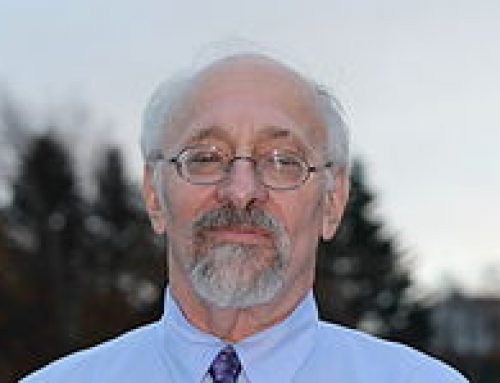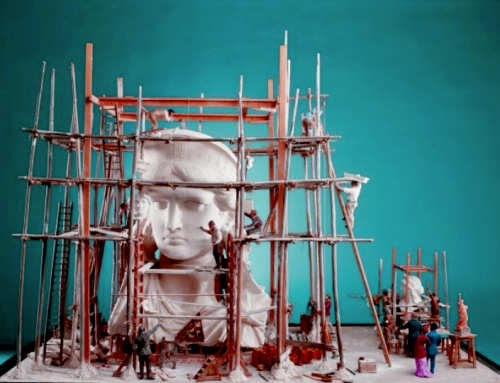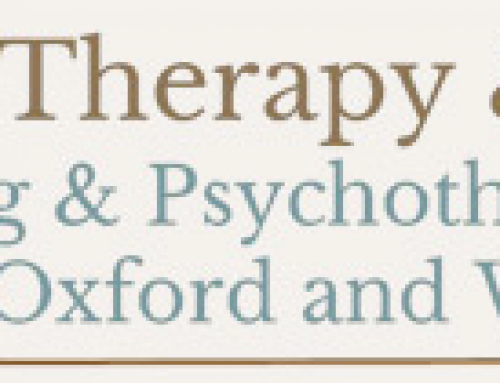A series of open evenings (conversations as well as question and answer sessions) to help you find your way through the maze of the psychological therapies
The psychological therapies are a minefield, and very confusing for the layperson. What are the differences between psychology, CBT, counselling, psychotherapy and psychoanalysis (and many, many others)? Even the therapists themselves are not always clear about it, so how can an ordinary person?
This series of free events gives you an opportunity to join the conversation and ask all the questions you did not know whom to ask. No previous experience is necessary.
As an experienced integrative therapist and trainer and an OTS Director, Michael Soth has a reputation for presenting an appreciation of all the various disciplines and approaches that comprise the field of the psychological therapies. In this profession nobody can be entirely impartial, but we will give it a good go - we will at least approximate a sympathetic understanding and validation of the diverse approaches, which the field has to offer.
These workshops are being offered by OTS, which was set up by Justin Smith as an initiative to de-mystify psychotherapy and counselling and make it more accessible and affordable to the wider community. OTS is unique in bringing together therapists from a broad spectrum of therapeutic approaches, working together to tailor the therapy to our client’s needs and ‘match’ clients to therapists. Our idea is to create the best fit for what is going to work best for each client and maximise the ‘quality of relationship’ (which is widely recognised as a crucial factor in making therapy work). OTS also aims to make therapy more affordable, through offering effective group therapy.
Michael & Justin will offer these events with the help of OTS therapists who will assist them in creating a safe and conducive atmosphere. It is likely that we will spend some of the time in smaller groups, to give everybody a chance to speak and get involved, if they want to.
About the timing & scheduling of these events:
Please email us to let us know which of the events listed below you are interested in, and which of the times and venues indicated would be possible for you. As we are offering a number of events and want to make sure they will all be well attended, we will schedule them in collaboration with everybody who expresses an interest in attending them.
We hope to be able to have the first free events taking place in February 2018.
1. Everything you always wanted to ask about therapy …
With Michael Soth
The fields of counselling, psychotherapy and psychoanalysis do not have a good track record in terms of communicating clearly and openly with the general public, despite the fact that all of these professions aim to assist with our common human experience. However, therapeutic theory has traditionally been shrouded in mystifying language and psychiatric labels with little meaning.
Amongst the competing and conflicting theories, each claiming to be better than anything else (at the last count, there now exist more than 400 distinct therapeutic approaches), it’s next to impossible for the ordinary layperson to see the wood for the trees.
How do you find the ‘right’ therapy or therapist for yourself or for a loved one?
In this open evening, Michael will attempt to answer all your questions in a way that is informative, accessible, impartial, and engaging.
Michael has been running an assessment and referral service in Oxfordshire for 25 years, and has a reputation for helping people find a good match between client and therapist. This ‘fit’ is crucial in establishing a good working alliance, which is one of the key factors for a productive outcome of therapy. In order to do this well, he relies on a fairly unbiased appreciation of the many differing therapeutic approaches available. Michael is known for his uniquely wide integration of all the therapeutic approaches, recognising the strengths and weaknesses of each of the traditions.
2. How does therapy help (or does it)?
With Michael Soth
In the world of therapy, there are very few ‘truths’ that all therapists agree on. The fundamental principles claimed by any one approach are questioned and contradicted by another. In that way, the different therapeutic approaches appear worse off than the religions (many of which at least do agree about some fundamental human values, like kindness and peace). What is supposed to be helpful in therapy, and what is supposed to be useless, counterproductive or outright dangerous is very unclear and controversial. The traditional approaches are making not just different, but often opposite claims.
One of the main questions that divides the field of counselling & psychotherapy is: How does therapy work? Does it? What do we mean by ‘work’? What goes ‘right’ and what goes ‘wrong’, and how do we know? The different approaches have contradictory answers and views on this question, so as a layperson, how can you find your way through the maze?
In this open workshop session, Michael will attempt to answer all your questions in a way that is informative, accessible, impartial, and engaging.
Michael is known for his integrative teaching, which is based upon an appreciation of the many diverse therapeutic approaches available, and their respective strengths and weaknesses. In this workshop he will explain why he sees the contradictions between the approaches as potentially productive avenues into a deeper and more embracing understanding of the therapeutic process.
3. The helping relationship - beyond therapeutic approach and professional discipline
With Michael Soth
The disciplines dealing with emotional and mental distress are profoundly fragmented and divided not only from each other, but often against each other. The layperson does not understand the differences between psychiatrists, psychologists, counsellors, psychotherapists, and psychoanalysts. They have even less of an idea about the different theories and approaches which sub-divide those disciplines further.
If all of these practitioners are available to provide psychological help, how come they contradict each other? If they can’t agree between each other, how can you trust them as a profession?
The layperson finds it hard to understand why there should be such contradictory theories and assumptions.
The client’s experience of being ‘helped’ has little to do with how therapists split hairs between each other. As a client, I am not interested in how the professionals disagree – ‘I want them to pull together and prioritise me and my needs and how I can be helped. I couldn’t care less about the finer differences between the disciplines and approaches.’
How can we get down to the human level, and the different kinds of help that may be needed by different people in different crises and at different stages in their lives?
In this open workshop session, Michael will attempt to answer all your questions in a way that is informative, accessible, impartial, and engaging. Michael is known for his integrative teaching, which is based upon an appreciation of the many diverse therapeutic approaches available, and their respective strengths and weaknesses. He sees the contradictions between the approaches as potentially productive avenues into a deeper and more embracing understanding of the therapeutic process.
4. Beyond the talking therapies – the bodymind dimensions of the psyche
With Michael Soth
For about 100 years, the bulk of the psychological therapies have agreed on one thing: the conscious, talking mind as the avenue for dealing with emotional and mental distress. Much of this is based on the assumptions of the 19th century when Freud originated the ‘talking cure’: it’s mind over matter (or what is sometimes called the Cartesian split, after the philosopher Rene Descartes).
It’s only been since the 1990’s and the decade of the brain, that modern neuroscience has comprehensively thrown out and transcended these assumptions. It’s common sense experience for most of us that body, feelings and mind hang inextricably together, and that the psyche is interwoven with all these aspects of the bodymind.
Traditional talking therapy has found it difficult to do justice to the holistic, multi-dimensional complexity of the psyche. It’s no wonder that it has limited effectiveness and haphazard results.
This becomes most pressing in conditions like eating disorders, trauma, anxiety (which usually has a strong physical component), hyper-tension and many others where the ‘felt sense’ of the body is obvious. But the traditional talking therapies have frustrating limitations for most clients in most other situations, too. Most of us realise that insight is not enough – we are dealing with entrenched patterns, which involve all levels of the bodymind in creating conflict, blockages and stuckness.
In this open workshop session, Michael will attempt to answer all your questions in a way that is informative, accessible, impartial, and engaging. Michael is known for his embodied-relational approach to therapy, having worked at the bodymind interface and with the psychosomatic connection for the last 30 years.
5. Individual or Group Therapy – what works when?
With Justin Smith
It is a curious thing that over the last 40 years, since the beginnings of the humanistic revolution in therapy, the option of group therapy has declined in popularity, both in terms of what’s actually on offer and also in terms of its perception and credibility in with the public.
We believe this is a shame – it’s an unnecessary, misguided and unhelpful development, and our vision for OTS is to give group therapy back its rightful place. For many people and in many situations, group therapy should be the favoured option, being more affordable and more directly effective in terms of the presenting issues.
Therefore, group therapy should be recognised as a valid and productive format of therapy, and one of the options we recommend when assessing people seeking psychological help.
There are, of course, many other situations where group therapy is not a good idea, and where individual, couple or family therapy is preferable, required or advised, and also likely to be more effective.
In this open workshop session, Justin will offer an exploration of the considerations and criteria we take into account when making recommendations. We will attempt to answer all your questions in a way that is informative, accessible, impartial, and engaging. It is an evening that will also help you decide whether group therapy is for you or not.
6. Who Am I – Who Are You?
With Justin Smith
‘The unexamined life is not worth living’ is a famous dictum apparently uttered by Socrates at his trial for impiety and corrupting youth, for which he was subsequently sentenced to death. No one will be sentenced in this workshop, but we will consider what it means examine our lives, and wonder how we might do that to useful effect.
We all develop as people with a set of beliefs about our selves and other people. The beliefs are mainly generated through interactions with the significant and influential people in our lives from the first moments of our being onwards. But are these beliefs the truth and right? What is subjective truth and what is reality.
In this open workshop we will take a whistle-stop journey through child development, the unconscious mind, beliefs, truth, human relationship and curiosity.
7. How does the mind, our personality and character develop?
With Justin Smith
The mind is often defined as ‘the element of a person that enables them to be aware of the world and their experiences, to think, and to feel; the faculty of consciousness and thought.’ But where is mind? We tend to think of it as being between our ears, as that is where we experience ourselves thinking – in the head. So, does our body have anything to do with thinking? ‘What does your heart or your gut tell you’? People say. How come? How does this relate to the mind between the ears?
And, where is our personality and our character structure located? What is the relationship with mind here, and how do they all develop? Are they fixed or can they be altered?
In exploring these questions, you will begin to think about yourself in new ways, with new possibilities!
8. Knowing Yourself & Being Effective
With Justin Smith
This conversational workshop will explore questions such as: How did we become who we are; what makes relationships difficult; why are emotions so problematic; why did my therapy not work; how do you live a more joyous life; what is love; and many others. The style of the workshop will be conversational around these questions, and people can come to more than one workshop, as each one will be different.
These workshops will help develop your understanding of the unconscious processes which impact how we think and feel, and how we interact with others and life in general; they can be used to think about what actually supports us in life, and what gets in the way of us having the life we want.





Leave A Comment
You must be logged in to post a comment.